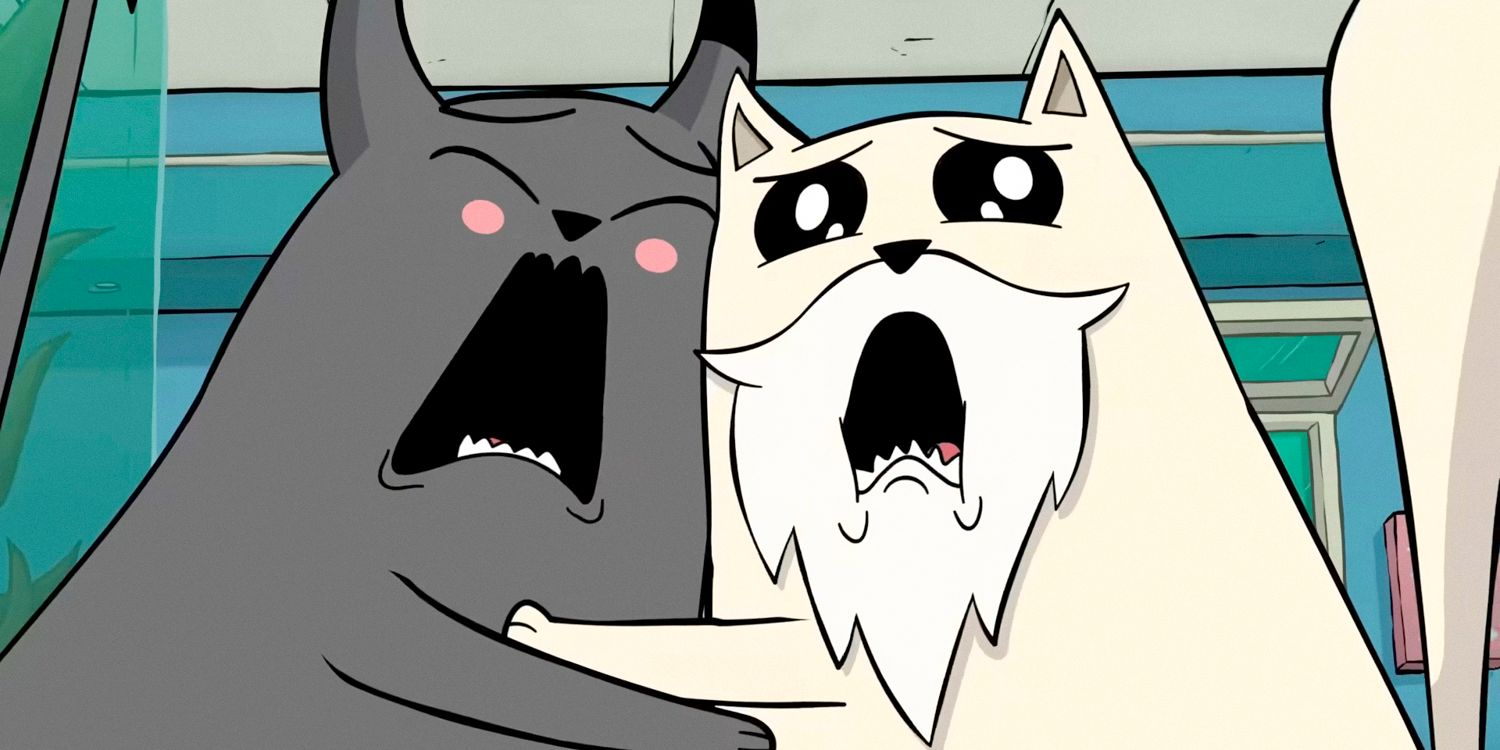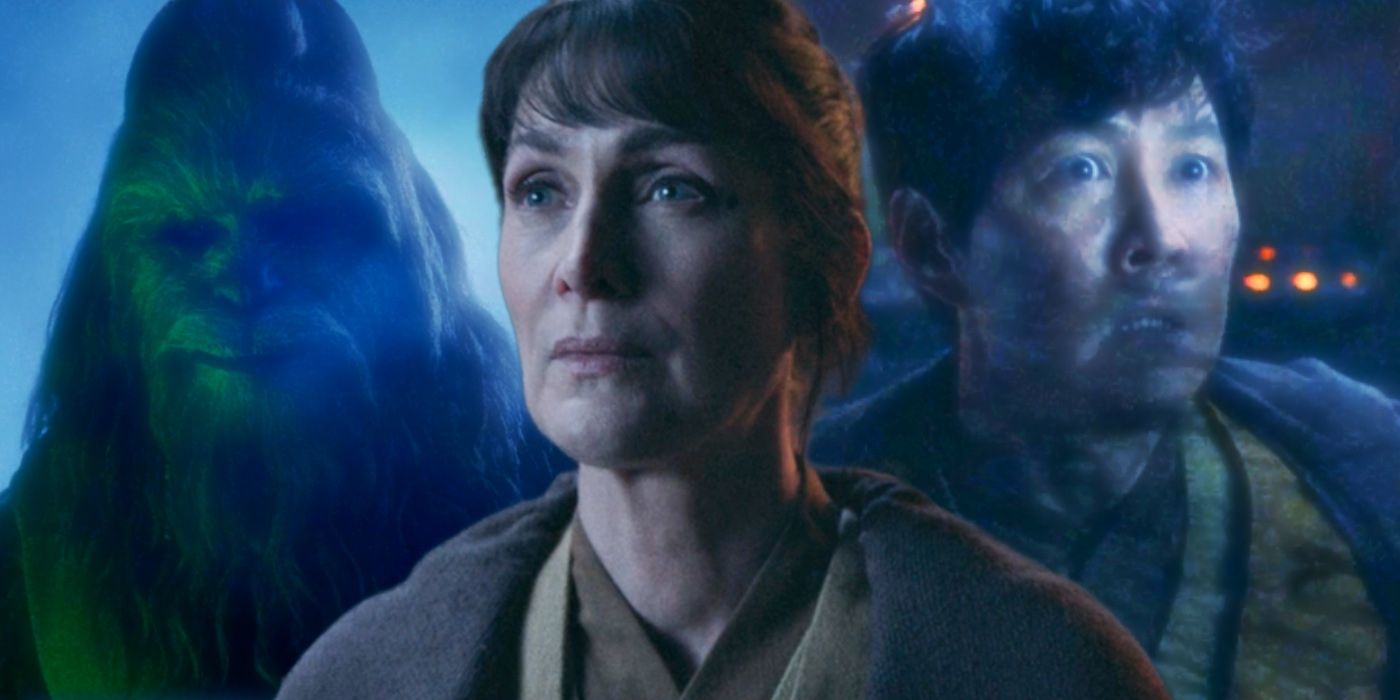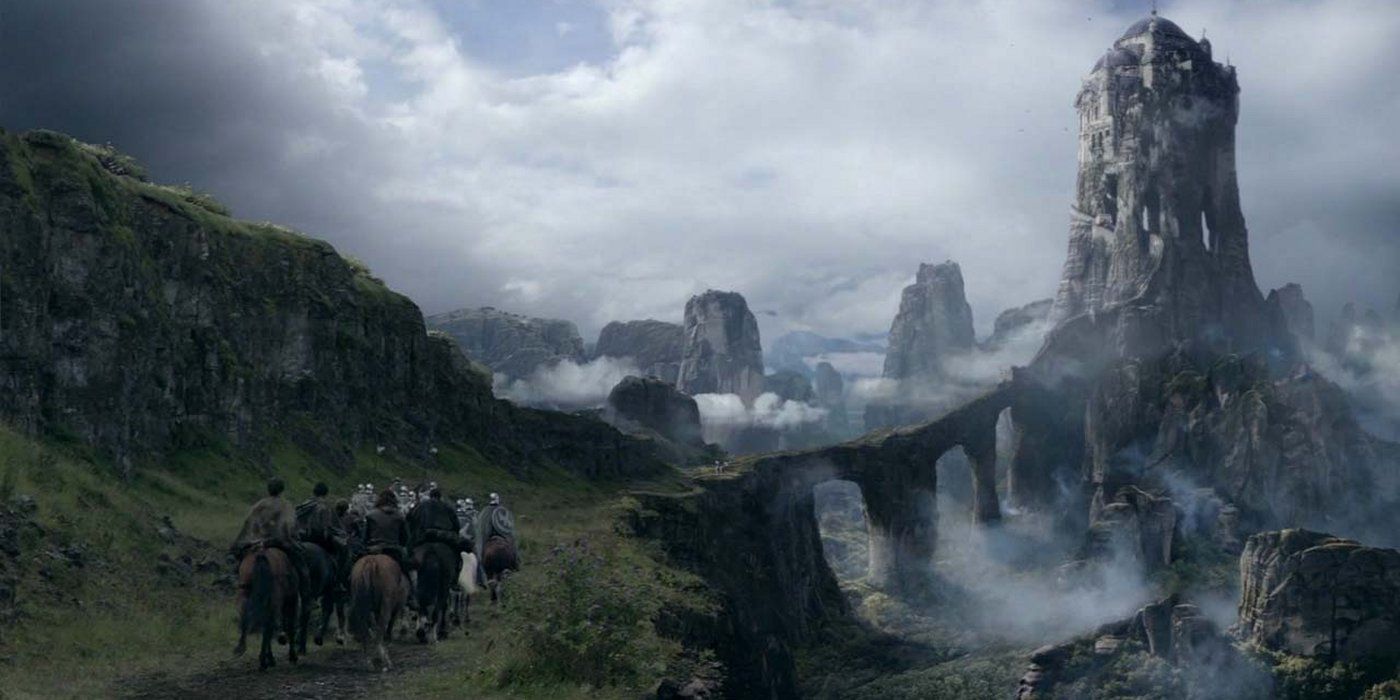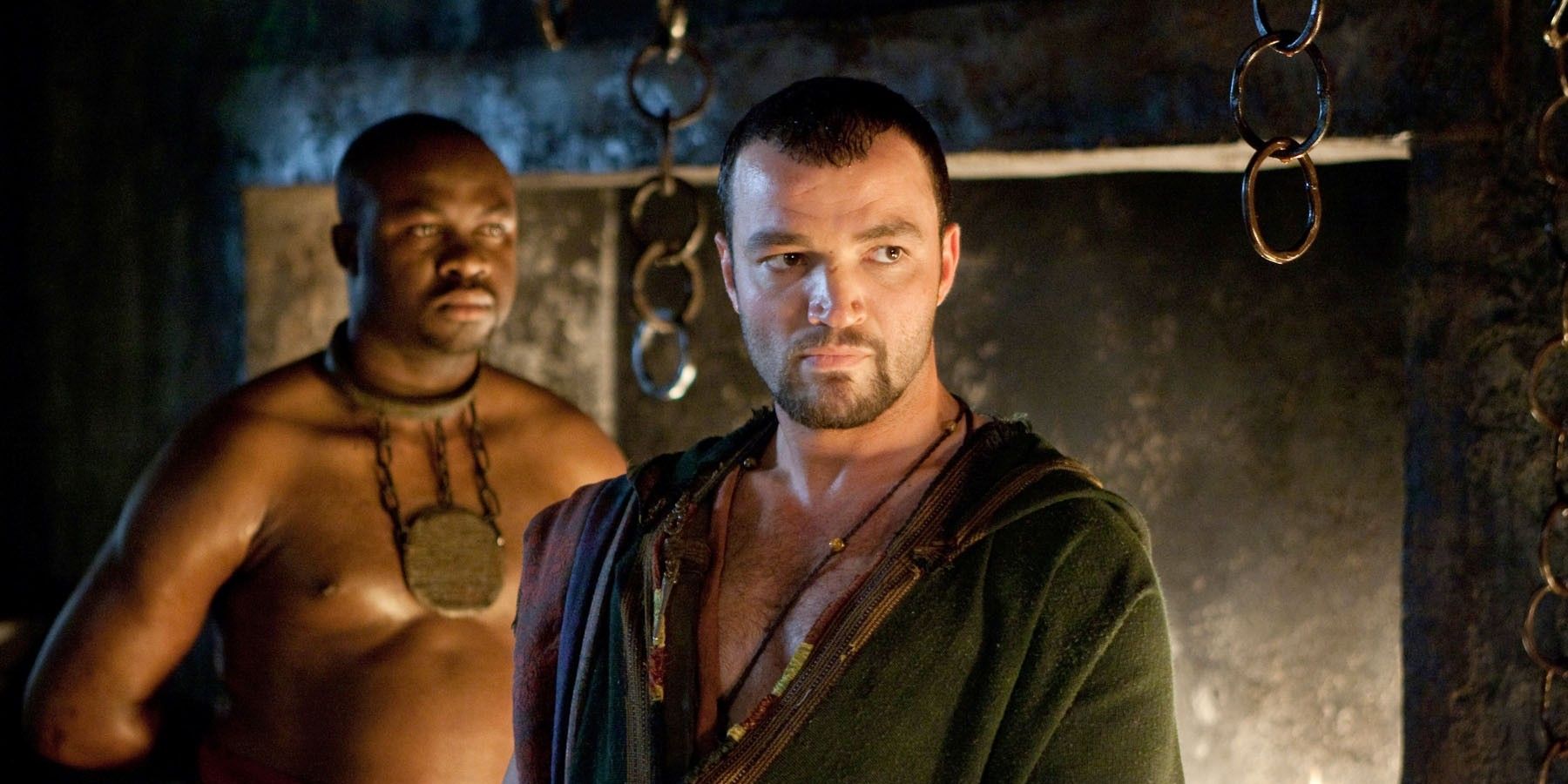War movies have become rare these days but the 70, the 80s and the 90s were littered with films about soldiers and their plight. Consequently, the competition was fierce and it was hard for any director’s work to stand out. However, two of the greatest filmmakers of the pre-2000s era made war movies that are jointly considered the two greatest offerings in the genre.
The Shining‘s Stanley Kubrick made Full Metal Jacket, a story about the experiences of a platoon of U.S. Marines through their inhumane boot camp training and their eventual hardships on the battlefield in Vietnam. The Godfather‘s Francis Ford Coppola made Apocalypse Now, a story about US Captain Benjamin L. Willard (Martin Sheen), who is sent to assassinate Walter Kurtz (Marlon Brando), an American Green Beret Colonel who has gone rogue in Vietnam. So, which of the two movies is really better than the other?
Full Metal Jacket: Gradually Takes Us Through The Training Phase

War movies tend to rush the viewer to the battlefield where the focus is entirely on the action. We never get to know what the soldiers were like before they wore the prestigious uniform. We never know about those who didn’t make it through training, either.
Full Metal Jacket started by taking the viewer through the brutal training process that new recruits of the Marine Corps went through in Parris Island, South Carolina. They were yelled at, forbidden from eating meals that they loved, and punished heavily for petty offenses. Most of the brutality was meted out by Sgt. Hartman, their training officer. By the time, the soldiers were on the battlefield, each of them had a proper background story.
Apocalypse Now: Breathtaking Footage
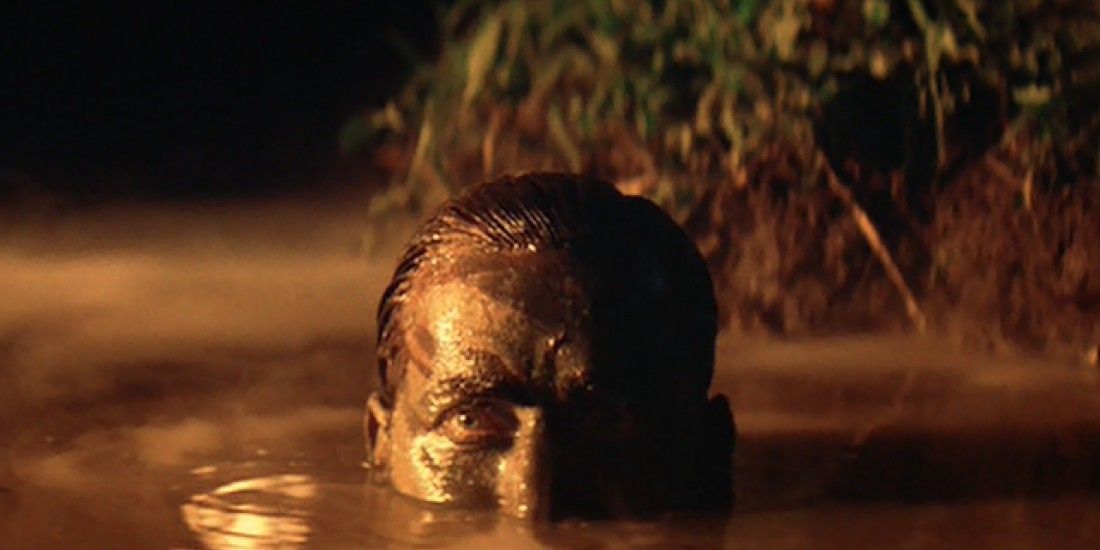
Watching Apocalypse Now, you can’t help but wonder whether Director Francis Ford Copolla time-travelled into the future and acquired all the latest camera technology. Everything looks too beautiful. Using the green Philippine jungles as a filming location clearly helped.
For a film that was released in the late 1970s, the visuals are just too good. If you watch war movies that were released as recently as the 1990s, you can tell that they are a little bit old. The same can’t be said of Copolla’s masterpiece.
Full Metal Jacket: Outstanding Dialogue
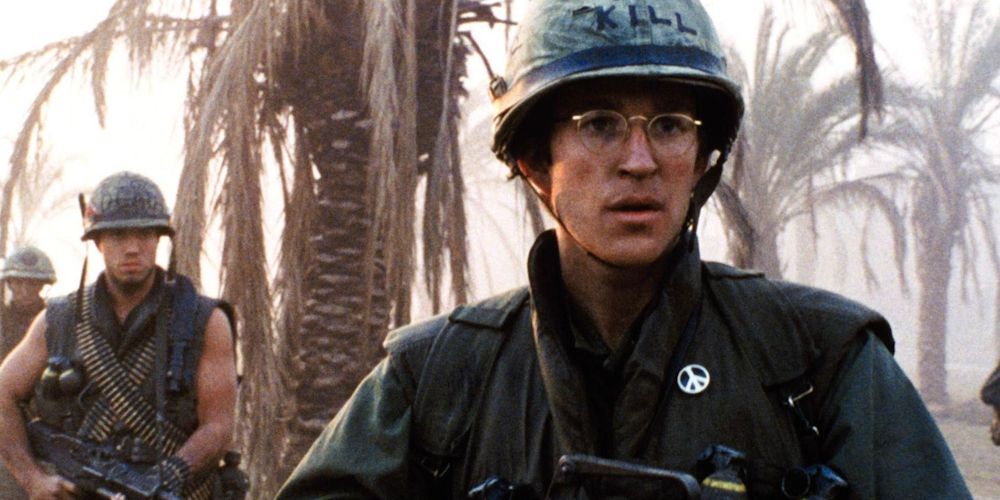
The dialogue in the first half of the film is impossible to forget. The contribution to the dialogue mostly comes from Sgt. Hartman’s interaction with the recruits. His first-ever statement sets you up for the kind of conversations you should expect in the movie. He says, “I am Sgt. Hartman, your senior drill instructor. From now on you will speak only when spoken to, and the first and last words out of your filthy sewers will be ‘Sir.’ Do you maggots understand that?” And they all respond with “Sir, Yes Sir!”
While in Vietnam, a soldier who goes by the nickname Crazy Earl says “these are great days we’re living, bros. We are jolly green giants, walking the Earth—with guns. These people we wasted here today are the finest human beings we will ever know. After we rotate back to the world, we’re gonna miss not having anyone around that’s worth shooting.” Sadly, Earl doesn’t rotate back to the world. He gets killed on the battlefield.
Apocalypse Now: Captivating Opening Sequence
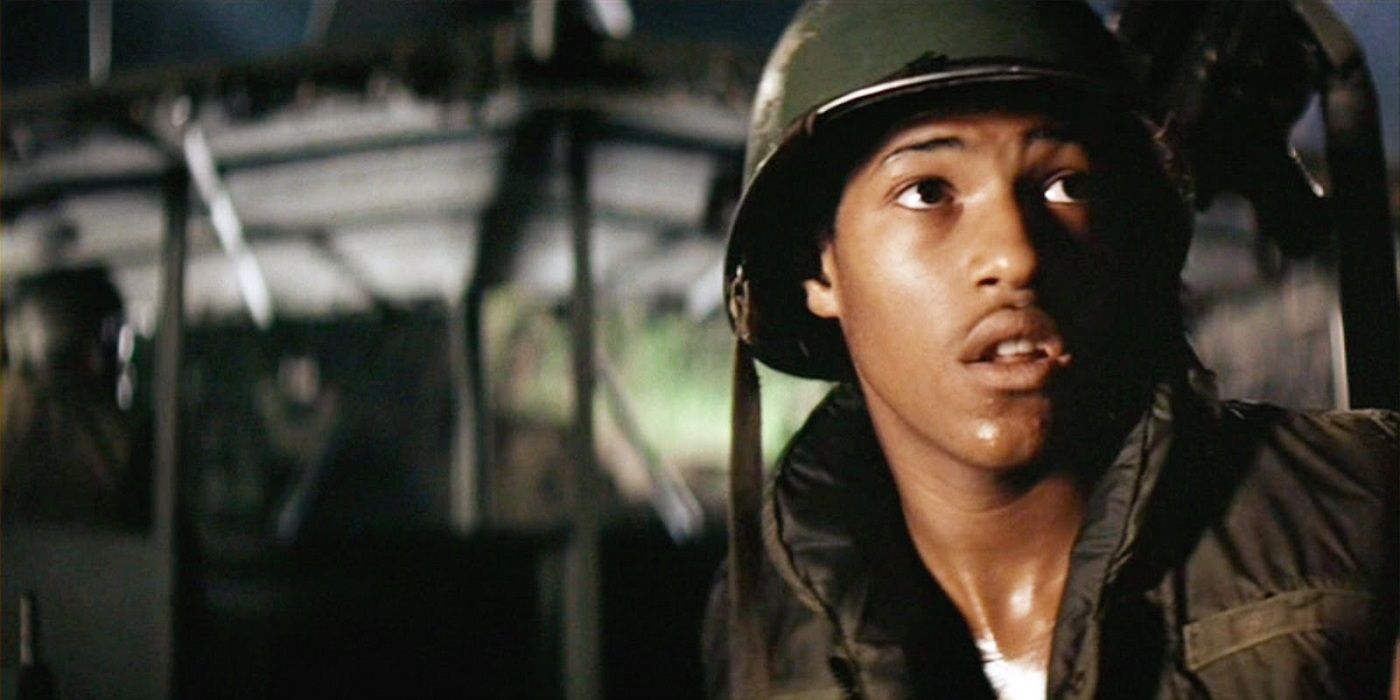
Some films grab your attention from the start while some normally ask you to wait. However, those that don’t ask viewers to be patient never have to worry about people shouting “it sucks” before they even see what’s in store in the later stages.
Apocalypse Now begins by showing a line of palm trees being crisscrossed by choppers before flames engulf them. That’s actually a Vietnamese village being destroyed. Conveniently, Jim Morrison’s dirge dubbed “The End” is playing in the background.
Copolla was once quoted as saying that the Philippines was the only place where it would have been possible to burn so many acres of trees without backlash from environmentalists. Hmmm… We can be quite sure that Leonardo di Caprio doesn’t like this film.
Full Metal Jacket: Impressive Acting
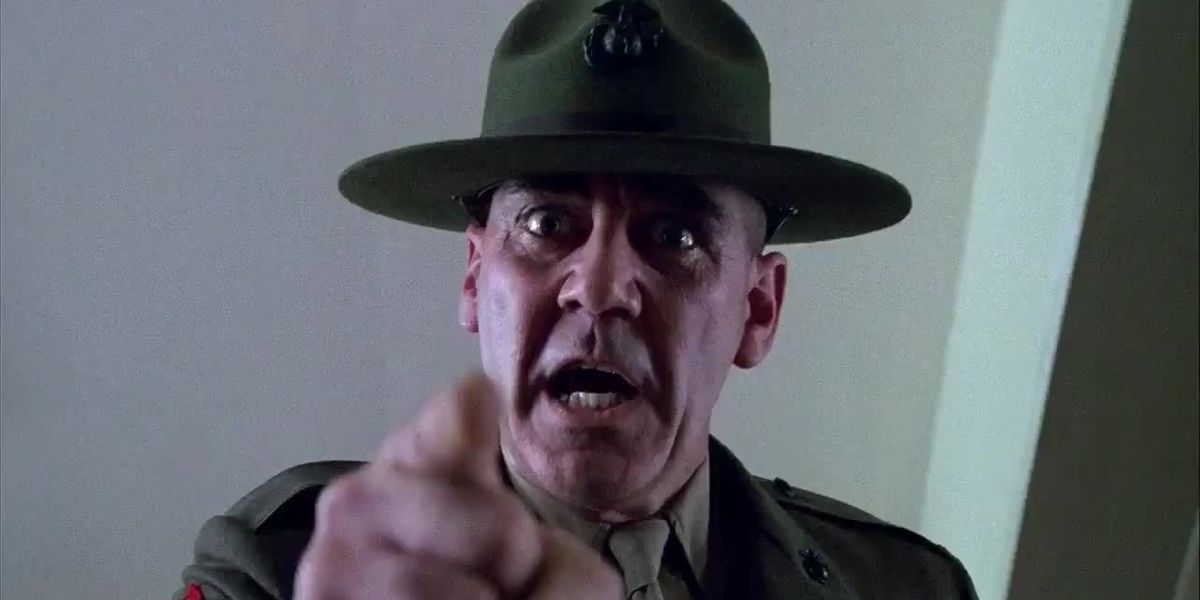
R. Lee Ermey gave an outstanding performance as the vulgar and intimidating drill instructor Sgt. Hartman. How he stares at the recruits straight in their faces and yells at them while dishing out golden quotes at the same time is simply marvelous. For his role, he received a Golden Globe nomination for ‘Best Supporting Actor.” Interestingly, Lee actually served as a drill instructor during the Vietnam War before trying his hand at acting.
Ermey went on to be cast in other authority figure roles like Mayor Tilman in Mississippi Burning and a police captain in Se7en. Sadly, he passed away in early 2018 due to complications from pneumonia.
Apocalypse Now: Superior Script
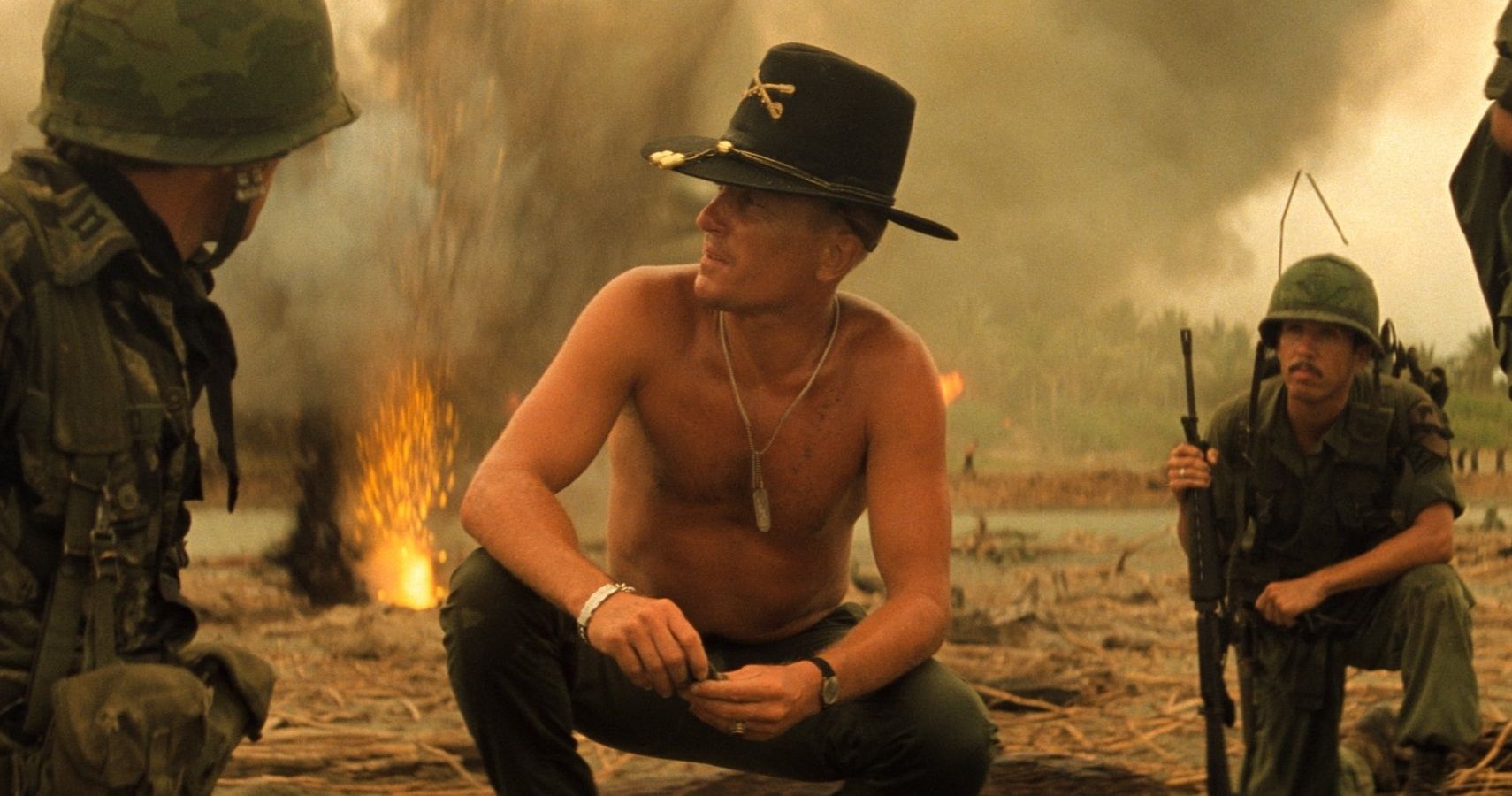
While Full Metal Jacket was accused of being a little bit all over the place, Apocalypse Now tells all its minor and major stories perfectly. The screenplay was written by Copolla and John Millus. There were also some contributions from Marlon Brando who is said to have altered the parts he didn’t like.
Some moments in Apocalypse Now are bizarre but is a movie any good if it doesn’t make you shout “What the hell?” One of the most interesting scenes happens when Colonel Kilgore (Robert Duval) orders a full-on military assault on a coastal village so that they can clear the ground for his men to go surfing. Kilgore also gives us the evil line “I love the smell of napalm in the morning.” The only thing he could have added after that was Mua Ha Ha Ha! Did you forget your heart in America, Kilgore?
Full Metal Jacket: Addresses Mental Issues
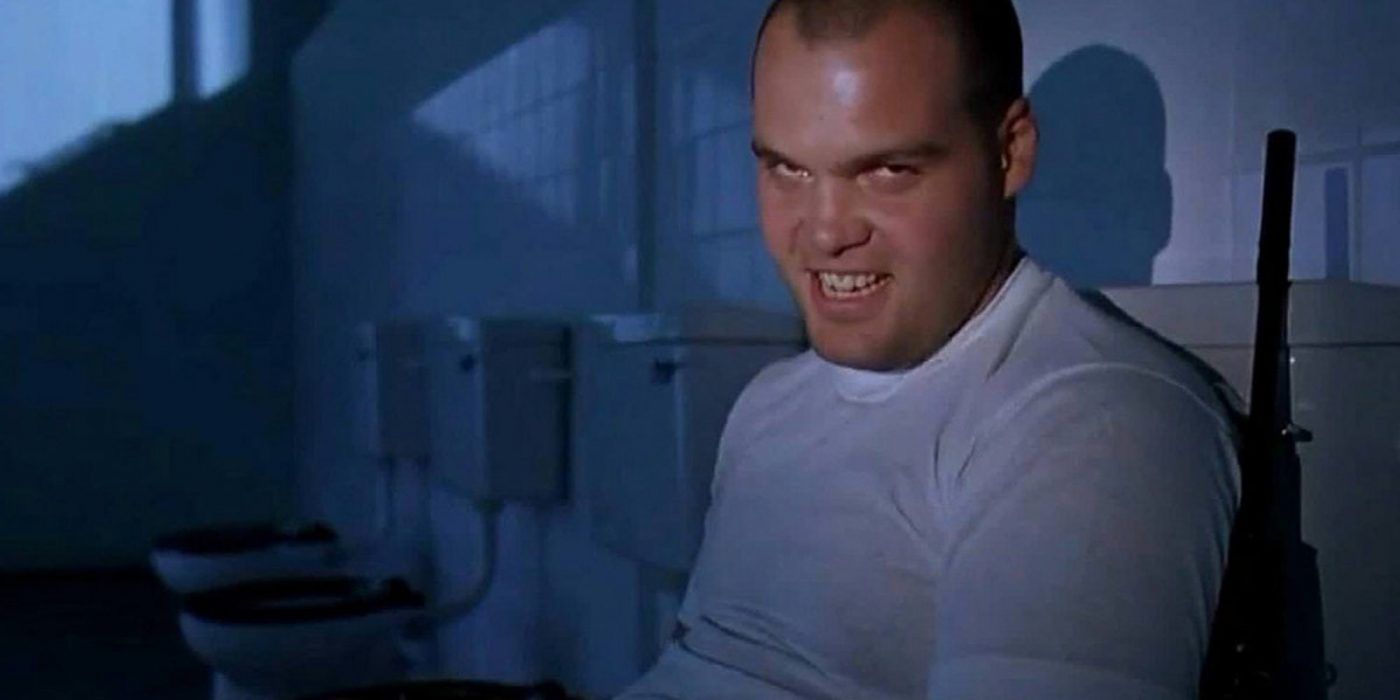
It is true that war veterans end up being plagued by mental issues sometimes. The same applies to recruits. While the majority of war movies ignore the presence of mental problems in the military, Full Metal Jacket addresses them head-on. Like 13 Reasons Why, the movie also makes it clear that bullying can have grave consequences.
In the film, Private Pyle who is often the recipient of the drill instructor’s brutality ends up murdering his cruel superior before taking his own life. First, he compensates for his poor performance in training by learning how to shoot really well. This impresses Sgt. Hartman, who begins to like him, but, unfortunately, Pyle is found with a doughnut. The other recruits are punished for his behavior, and so they revenge on him by jointly ambushing him and beating him up at night. After the incident, Pyle becomes psychotic. He eventually kills Sgt. Hartman before taking his own life.
Apocalypse Now: It Created a Different Conversation About War
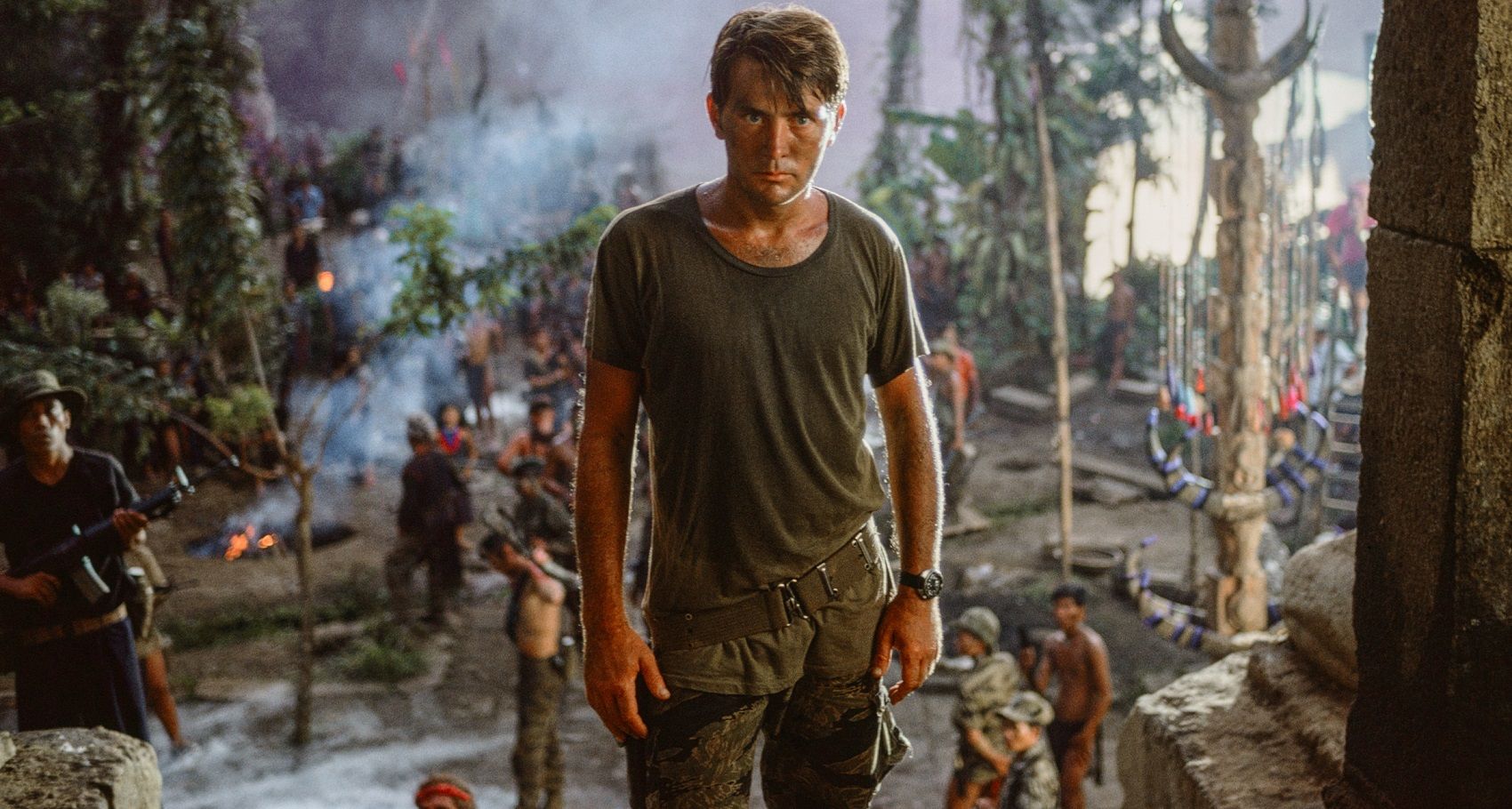
Copolla’s film has been accused of being anti-war rather than pro-war. It’s almost as if the decorated director deliberately showed the world all the bad things about warzones to pass the message that war isn’t as fun as Call of Duty makes it seem. In all honesty, clearing a village in order to have room to surf is something even Thanos wouldn’t do.
There was needless brutality that left behind innocent victims. Most of the commander’s decisions were fueled by selfish interests. Most importantly, the film made us ask the question—is war really necessary?
Full Metal Jacket: Spectacular Final Battle Scenes
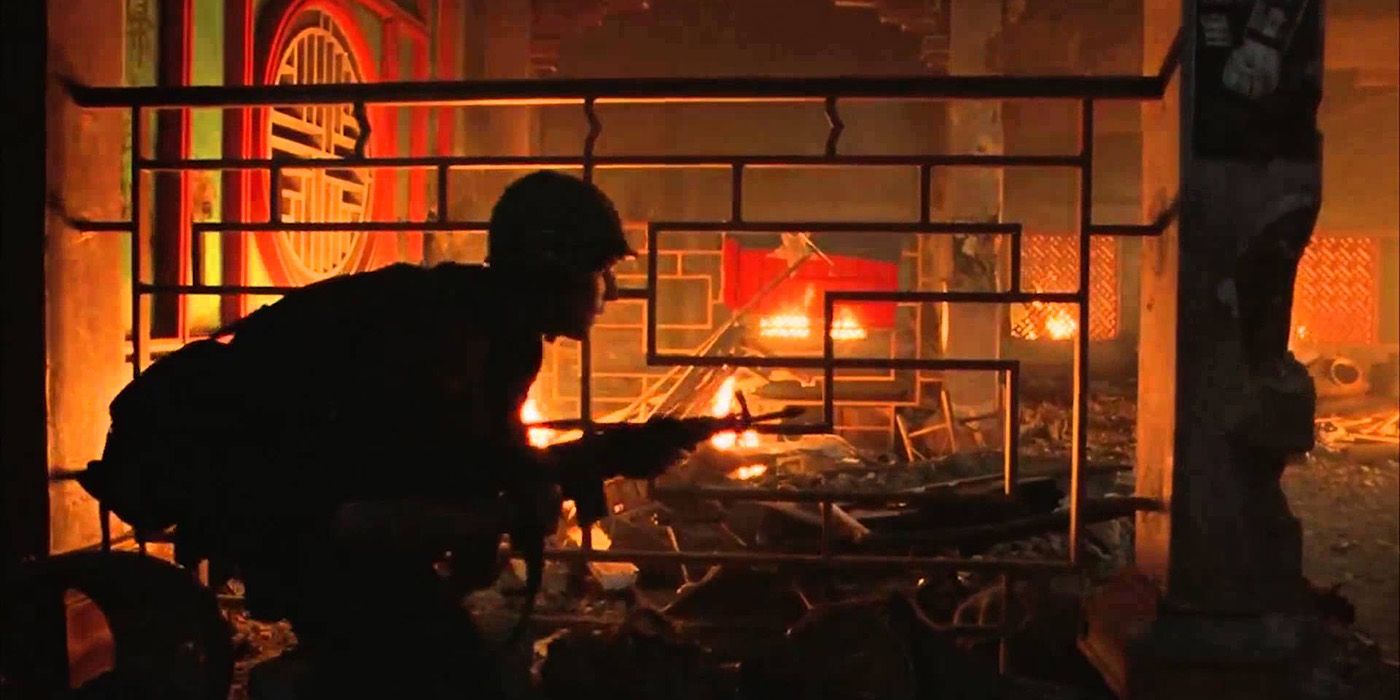
We all love to see soldiers taking out enemies with ease in movies, but it’s also very interesting if its the other way round. In the final 30 minutes of Full Metal Jacket, a highly skilled female Vietnamese sniper decimates nearly half of the platoon all by herself.
At some point, the soldiers even call in for backup, thinking there are several enemy combatants in the abandoned buildings but its just one person doing the damage. When backup fails to arrive, they try to track the sniper but most of them end up dead. When the few remaining ones finally locate and kill the sniper, their shock is all too clear.
Apocalypse Now: Human Elements
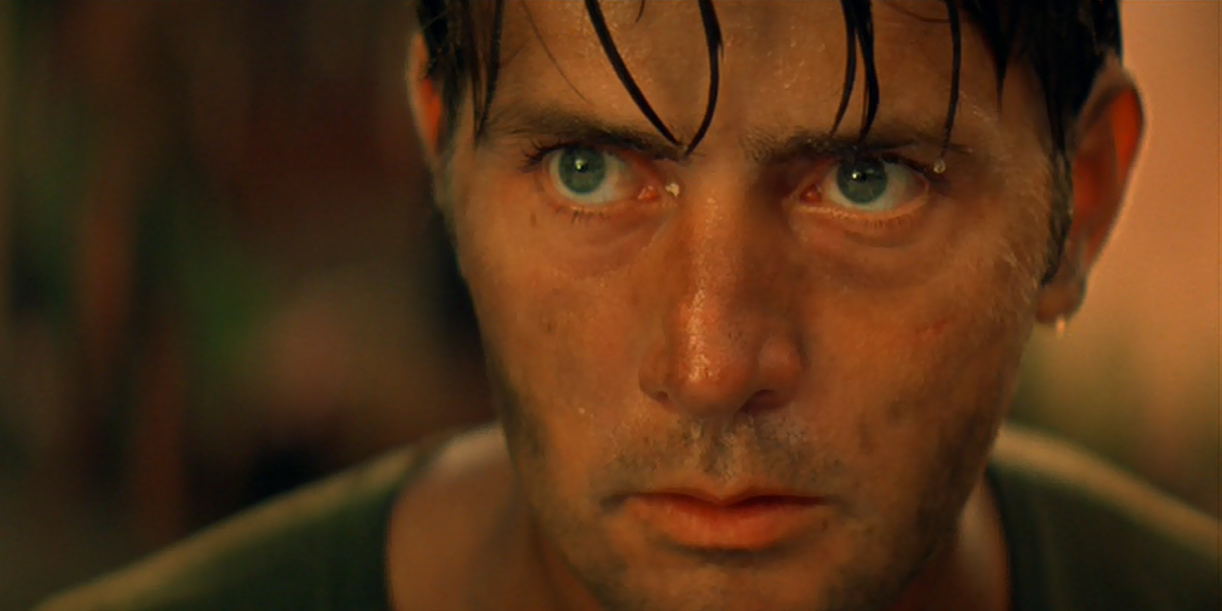
Nearly all the characters in Apocalypse Now were imperfect. Whereas other war movies portray the enemies as the only crazy ones, Apocalypse Now proved that anyone (and everyone) was crazy. But being crazy is being human and good directors know how to capture this.
In the film, there was no Rambo-like figure being tortured and eventually killing his way into freedom. No. Everyone had their own motive for doing things and it wasn’t exactly a good one. At the time, the film must have been a welcome relief for everyone who hated the one-man-army war movies with heroes that were perfect killing machines.
